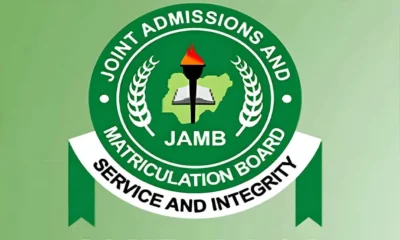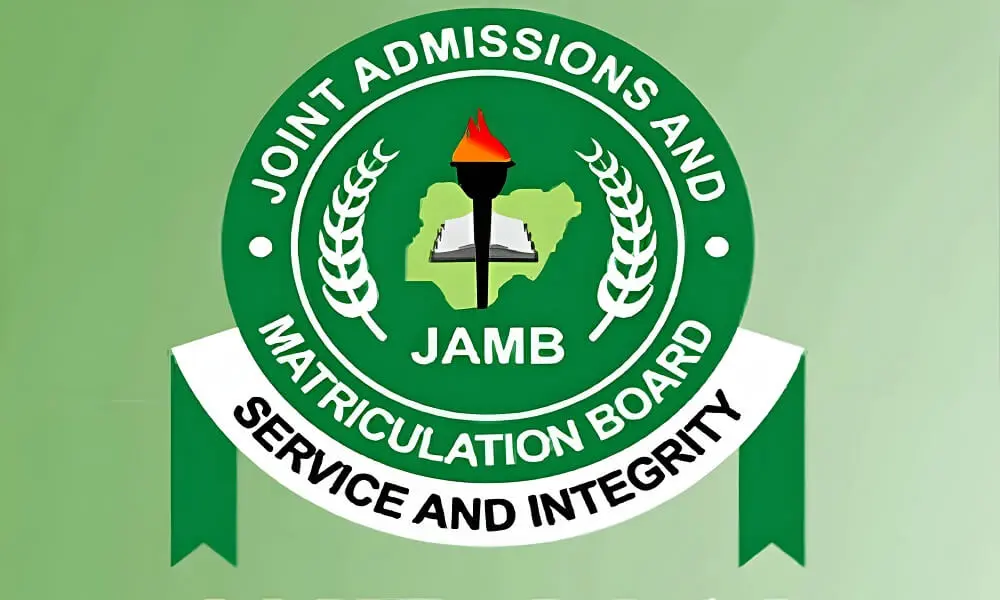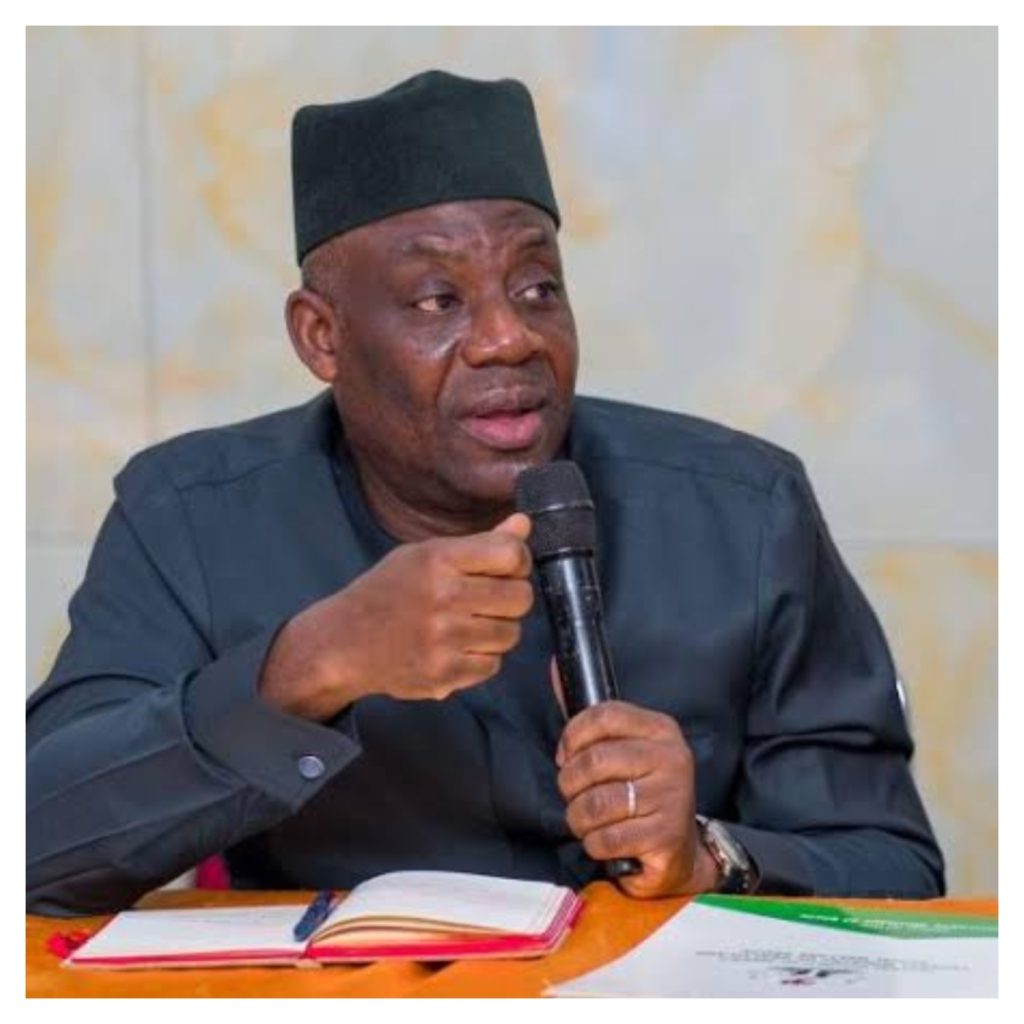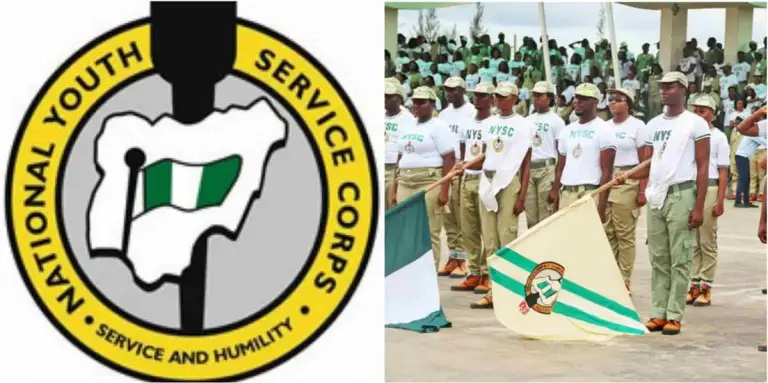Education
President Tinubu launches student loan Thursday, foreign scholars seek inclusion
Published
1 year agoon
By
Ekwutos Blog
Tinubu will launch the Student Loan Scheme on Thursday, March 14, 2024.
The Special Adviser to the President on Media and Publicity, Mr Ajuri Ngelale, said this on Sunday during TVC’s Politics on Sunday monitored by our correspondent.
On the programme titled ‘Counting the Cost of Presidents Tinubu’s Reforms,’ Ngelale highlighted some of the President’s welfare initiatives being implemented at the moment, saying, “Later this week, on Thursday, the President will launch the historic National Student Loan Programme.”
“This is a major form of obligation reduction for Nigerians and families and young people at a time when Nigerians are feeling the pinch. We believe this is the way to go,” he added.
President Tinubu had on June 12, 2023, signed the Access to Higher Education Act, 2023, into law to enable indigent students to access interest-free loans for their educational pursuits in any Nigerian tertiary institution.
The move was in “fulfillment of one of his campaign promises to liberalise funding of education,” a member of the then Presidential Strategy Team, Dele Alake, said.
The Act, popularly known as the Students Loan Law, also established the Nigerian Education Loan Fund, which is expected to handle all loan requests, grants, disbursement, and recovery.
The government initially said it would take effect in September, but it did not. It later shifted the take-off to January but that also did not happen.
The President proposed N50bn for its take-off in the 2024 budget he presented to the National Assembly last November.
On February 7, the Executive Secretary of the Nigeria Education Loan Fund, Dr Akintunde Sawyerr, exclusively confirmed to our correspondent that the much-awaited scheme would go live on February 21, when President Tinubu launches it at the State House, Abuja.
However, the launch was delayed, with Sawyerr, alongside Presidency sources, explaining that the lag time was to enable the fund to expand its mandate to include students seeking loans for skills development, as directed by the President.
After receiving a briefing from the NELFUND team led by the Minister of State for Education, Dr Yusuf Sununu, on January 22, the President directed the fund to extend interest-free loans to Nigerian students interested in skill-development programmes.
Tinubu based his decision on the need for the scheme to accommodate those who may not want to pursue a university education, noting that skill acquisition is as essential as obtaining undergraduate and graduate academic qualifications.
“This is not an exclusive programme. It is catering to all of our young people. Young Nigerians are gifted in different areas,” he said.
Linking this directive to the delay, the President’s Special Adviser on Information and Strategy, Mr Bayo Onanuga had told The Ekwutosblog , “Don’t forget that the last time they met, the President asked them to go and expand their mandate to include those who want to learn vocational skills. That could be the reason why the whole thing was delayed; they had to increase the scope.”
On Saturday, Sawyerr also told our correspondent that the delay was due to unperfected backend systems to power the application process as the scheme is “entirely technologically driven.”
He said, “The delay in take-off was basically to enable the agency to put all necessary measures in place as the scheme is entirely technologically driven.”
Meanwhile, members of the Nigerian community in West Yorkshire, United Kingdom have called for the inclusion of students studying abroad in the student loan scheme.
Representing the community members in a meeting with the acting Nigerian High Commissioner to the United Kingdom, Cyprian Heen, on Saturday, Tunmise Ajiboye urged him to advocate the inclusion of students in foreign countries in the government’s loan scheme.
In a statement on Sunday by Ajiboye, he noted that enabling students abroad to participate in the loan scheme would contribute to improving access to higher education for Nigerians studying overseas.
He also urged the government to provide support for students regarding exchange rates and foreign exchange, ensuring that they have access to favourable rates and assistance in managing their financial needs.
He said, “As a representative of Nigerians living here in the United Kingdom, we are gathered here not just as individuals seeking education and economic breakthroughs but as a collective voice demanding support and recognition from our government back home.
“Therefore, today, we stand united in calling upon the Nigerian government to make the following requests:
“Diaspora voting: International passport renewal delivery by post in Nigeria and the diaspora.
“Support for the students in the exchange rate and FX; inclusion of Nigerians studying abroad in the proposed student loan programme of the Federal Government.
“Lastly, provide a platform for Nigerians living abroad who may want their children to get Nigeria’s state of origin.”
You may like


2025 mock UTME: JAMB disburses over N397m in transport allowances to officials


Lagos: Cause of Ijora-Badia explosion revealed


Take-It-Back protesters scamper for safety as police fire tear gas during protest in Abuja.


BREAKING: Peter Obi, Alex Otti summon Labour Party NEC meeting


How I caught lots of people’s wives with big men, governors – Ali Baba


Protesters Defy Police, Throng Streets In Abuja, Lagos, Others
Education
2025 mock UTME: JAMB disburses over N397m in transport allowances to officials
Published
2 hours agoon
April 7, 2025By
Ekwutos Blog
The Joint Admissions and Matriculation Board, JAMB, said it has disbursed N397,030,900 as transport allowances to 1,909 officials participating in the conduct of the 2025 Mock Unified Tertiary Matriculation Examination, UTME, scheduled for April 10, 2025.
The Director of Finance, Mufutau Bello, disclosed this at a meeting convened to evaluate the Board’s readiness for both the mock examination and the main UTME.
According to Bello, the amount released so far for transport allowances represents only the first tranche of payments, covering one-third of the total officials involved in the exercise.
Stressing the critical national importance of the two examinations, he said, “The mock exercise is the first phase of our core mandate, and we must, as always, distinguish ourselves. The nation relies on the success of this exercise; any shortcomings could tarnish the integrity of our education system.
“Much is at stake, including the dignity of our processes, the tertiary education system, and substantial financial resources—over N397,030,900 has been paid as transport allowances to the 1,909 officials travelling for the mock exercise scheduled for the 10th April, 2025.
“This amount represents only the initial phase, accounting for one-third of the total number of officials involved.”
Staff members of the Board pledged their full commitment to ensure the successful and hitch-free conduct of both exercises across the country.
While acknowledging public concerns over local travel allowances, they clarified that such discussions often come from a limited understanding of the logistical scope involved in the nationwide examination process.
Education
Nigerians Govt orders universities, polytechnics to publish budget, others on websites
Published
22 hours agoon
April 6, 2025By
Ekwutos Blog
The Nigerian government has directed all heads of federal universities, polytechnics, colleges of education and other higher institutions to disclose their annual budget and other institutional data for public scrutiny.
The Minister of Education, Tunji Alausa, gave this directive in a statement released on Saturday by the ministry’s spokesperson, Boriowo Folasade
The minister said that educational institutions should publish their budget breakdown, research grant, Tertiary Education Trust Fund Allocation as well as student population on their official websites.
According to the minister, the move is to enshrine accountability and transparency in Nigeria’s education sector.
“In a bold move to entrench transparency, accountability, and good governance in Nigeria’s tertiary education system, the Honourable Minister of Education Dr Maruf Tunji Alausa has issued comprehensive directive mandating all Federal Vice- Chancellors, Rectors and Provost to publish key institutional data on their official websites with immediate effect. Aligning Nigeria’s higher education management with global best practices.
“Each institution must provide its Annual Budgetary Allocation in full detail, including the breakdown of expenditure across three core areas: personnel cost overhead costs and capital expenditure. In addition,
institutions are to disclose their Research Grant Revenue from the previous year.
“This data should be separated into two distinct sources: grants obtained from domestic bodies such as local industries, government agencies, or foundations; and those received from international sources, including foreign institutions, multilateral organizations, and development partners.
“Also to be displayed is the TETFund Allocation for the current year. The Institutions must clearly show the
total amount received from the TETFund, reflecting financial support for academic and infrastructural development in the present calendar year,” the statement said.
The directive further mandates the institutions to publish the total value of their endowment fund as recorded at the end of the previous year. This figure, which reflects funds donated or invested for the institution’s long-term financial health, must be updated quarterly to ensure currency and transparency.
“Finally, institutions are to present their current Total Student Population, which must be categorized into undergraduate and postgraduate levels, thereby providing a clear picture of enrolment and institutional capacity.
“The Ministry emphasizes that this information must be presented in a clear, accessible, and user-friendly format for public visibility. Websites should be structured in a way that allows the public, including parents, students, and stakeholders, to easily locate and understand these data points.
“All federal institutions are expected to comply fully with this directive and ensure that their websites are completely updated no later than May 31, 2025,” the statement added.
Ekwutosblog had earlier reported that a transparency report described Nigerian universities as a den of impunity and secrecy.
Education
Minister of Education, Dr Tunji Alausa Advocates Extension Of NYSC Scheme To Two Years
Published
2 days agoon
April 5, 2025By
Ekwutos Blog
In a move that could reshape the landscape of Nigeria’s youth development and national integration strategy, the Minister of Education, Dr. Maruf Olatunji Alausa, has called for the extension of the National Youth Service Corps (NYSC) programme from its current one-year duration to two years.
Dr. Alausa made this recommendation during a high-level stakeholder engagement in Abuja, emphasizing the need for a more impactful and immersive service year that aligns with the country’s educational and developmental goals. According to the Minister, extending the NYSC duration would provide Nigerian graduates with a broader platform to contribute meaningfully to national growth, gain valuable experience, and improve their employability.
“The NYSC scheme remains one of the most important platforms for national unity, youth empowerment, and community development,” Dr. Alausa stated. “However, in light of current realities, a one-year period may no longer be sufficient to achieve the desired depth of impact. A two-year service period will allow for more comprehensive training, community engagement, and skills acquisition, especially in sectors critical to national development.”
The Minister noted that the proposal is still under consideration and will require widespread consultation with stakeholders, including the NYSC Directorate, education professionals, youth representatives, and members of the National Assembly.
Dr. Alausa also suggested that the extended programme could be restructured to include a first year focused on national service and community development, while the second year could prioritize skill acquisition, entrepreneurship training, and job placement initiatives.
Reactions to the proposal have been mixed, with some youth groups expressing concerns about the feasibility of a two-year compulsory service, particularly in a challenging economic climate. Others have welcomed the idea, noting that a longer NYSC period could provide a more structured transition from academic life to the workforce.
As debates continue to unfold, Dr. Alausa reaffirmed the Ministry’s commitment to policies that will enhance the quality of education and empower Nigerian youths for a brighter future.

2025 mock UTME: JAMB disburses over N397m in transport allowances to officials

Lagos: Cause of Ijora-Badia explosion revealed

Take-It-Back protesters scamper for safety as police fire tear gas during protest in Abuja.
Trending

 Trending6 months ago
Trending6 months agoNYA demands release of ‘abducted’ Imo chairman, preaches good governance
- Business6 months ago
US court acquits Air Peace boss, slams Mayfield $4000 fine

 Politics6 months ago
Politics6 months agoMexico’s new president causes concern just weeks before the US elections
- Entertainment6 months ago
Bobrisky transferred from Immigration to FCID, spends night behind bars
- Entertainment6 months ago
Bobrisky falls ill in police custody, rushed to hospital

 Politics6 months ago
Politics6 months agoRussia bans imports of agro-products from Kazakhstan after refusal to join BRICS

 Politics6 months ago
Politics6 months agoPutin invites 20 world leaders
- Politics1 year ago
Nigerian Senate passes Bill seeking the establishment of the South East Development Commission.

